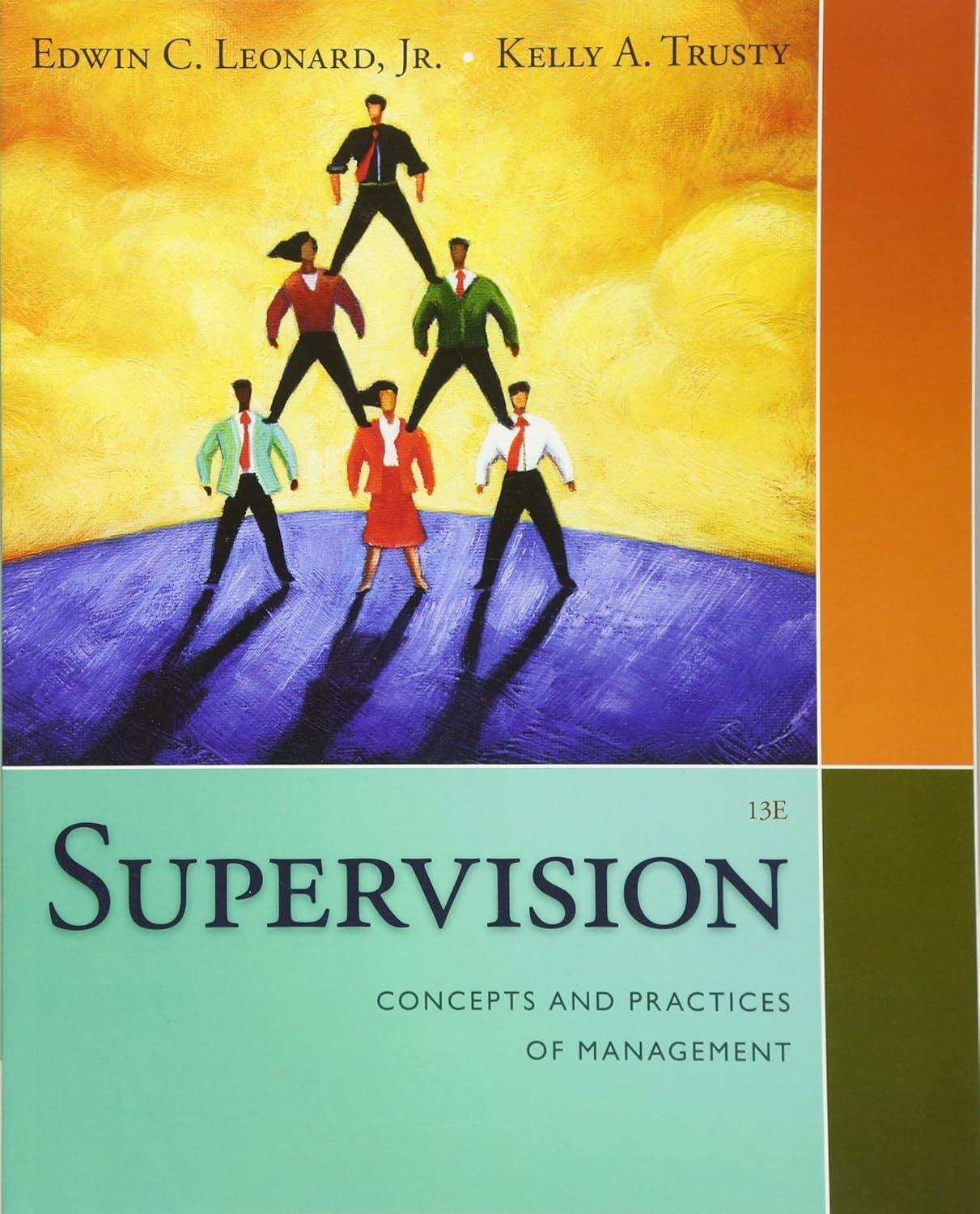To be effective, controls should be understandable to everyone who uses them and should yield timely information
Question:
To be effective, controls should be understandable to everyone who uses them and should yield timely information so that problems can be corrected before situations get out of hand. Also, controls should be suitable to, and economical for, situations. The more serious the consequences of mistakes, the tighter the controls should be, despite the expense. Further, controls should indicate where trouble lies in the process and should be flexible enough to adjust to changing conditions.
Control mechanisms can be categorized as feedforward, concurrent, or feedback based on when they are implemented in the control process. Feedforward, or preliminary, controls are used to anticipate and prevent undesirable outcomes. The person who checks the tires, oil, gas gauge, and the like before a trip uses a feedforward control. The traveler who notices that the fuel gauge is below half full or that the fuel warning light has just come on and pulls into the next gas station for a fill-up uses concurrent control. Feedback controls are employed after the fact; they are the basis for correction and improvement. The traveler who calculates average miles per gallon and uses that information when planning the budget for a next trip uses feedback control. Generally, effective supervisors rely on all three types of controls to improve the control process or to prevent problems.? K-526
Step by Step Answer:

Supervision Concepts And Practices Of Management
ISBN: 378854
13th Edition
Authors: Edwin C. Leonard, Kelly A. Trusty





